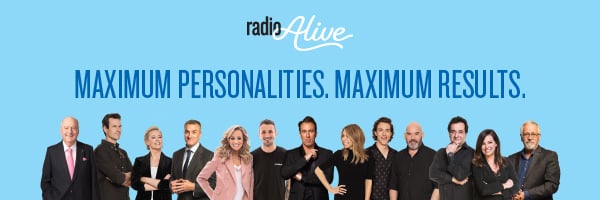With apologies to Shakespeare: Radio Tomorrow with James Cridland
A while ago, I worked on a radio station called “The Groove”, which was a soul music radio station in London. It didn’t have frequencies, since it was just online and through DAB broadcasting, which doesn’t use them; so it was just called “The Groove”.
It became quite obvious that nobody knew, from its name, that it was a radio station. On its website, its social media, and other places, we had to work quite hard to educate people that “The Groove is a radio station that…” and all this seemed a bit of a waste of time.
It’s certainly true that some radio stations have enough recognition that people would know they’re a radio station. “Triple M” is a good example of a station which has existed for some time now in Australia, and most people in its target market would, you’d think, know that it’s a rock radio station.
But, radio rarely has these type of large brands – particularly if you’re launching a new service. One way to get round that – as Triple M’s owners have done – is to use the strength of the main brand to launch sub-brands: TripleM Aussie, as one example, is a station that just plays Australian rock music. Still obviously a radio station to most people.
However, what happens if you don’t have access to this heritage?
There is a new branding trend I’m beginning to spot for radio – a trend which makes a whole lot of sense: a different brand on-air to everywhere else.
One example is Magic Radio, a station in the UK that’s called Magic Radio in its advertising, its press releases, its Twitter handle, but is called simply “Magic” on-air. You know it’s a radio station when you’re listening to the thing: but otherwise, “Magic” could mean anything at all.
The beginning of this year saw ABC Classic FM, a classical music station in Australia, change its name to “ABC Classic” – reflecting the multi-platform nature of radio. But this week, I saw a very clever (and sadly, YouTube-unavailable) TV ad for it that called it “ABC Classic Radio”. A perfect name for it off-air, but the “radio” bit is superfluous on-air.
Does it make sense to have a simple, snappy name for a radio station on-air… and then a longer, more descriptive station name in marketing material?
It seems an interesting new trend that might work well.
About The Author
James Cridland, the radio futurologist, is a conference speaker, writer and consultant. He runs the media information website media.info and helps organise the yearly Next Radio conference. He also publishes podnews.net, a daily briefing on podcasting and on-demand, and writes a weekly international radio trends newsletter, at james.crid.land.
Contact James at [email protected] or @jamescridland
In Act II, Scene II of William Shakespeare’s, Romeo and Juliet, the line is said by Juliet in reference to Romeo’s house: Montague. The line implies that his name means nothing and they should be together.
Juliet:
O Romeo, Romeo! wherefore art thou Romeo?
Deny thy father and refuse thy name;
Or, if thou wilt not, be but sworn my love,
And I’ll no longer be a CapuletRomeo:
[Aside] Shall I hear more, or shall I speak at this?
Juliet:
‘Tis but thy name that is my enemy;
Thou art thyself, though not a Montague.
What’s Montague? It is nor hand, nor foot,
Nor arm, nor face, nor any other part
Belonging to a man. O, be some other name!
What’s in a name? That which we call a rose
By any other name would smell as sweet;
So Romeo would, were he not Romeo call’d,
Retain that dear perfection which he owes
Without that title. Romeo, doff thy name,
And for that name which is no part of thee
Take all myself.Romeo:
I take thee at thy word:
Call me but love, and I’ll be new baptized;
Henceforth I never will be Romeo.



